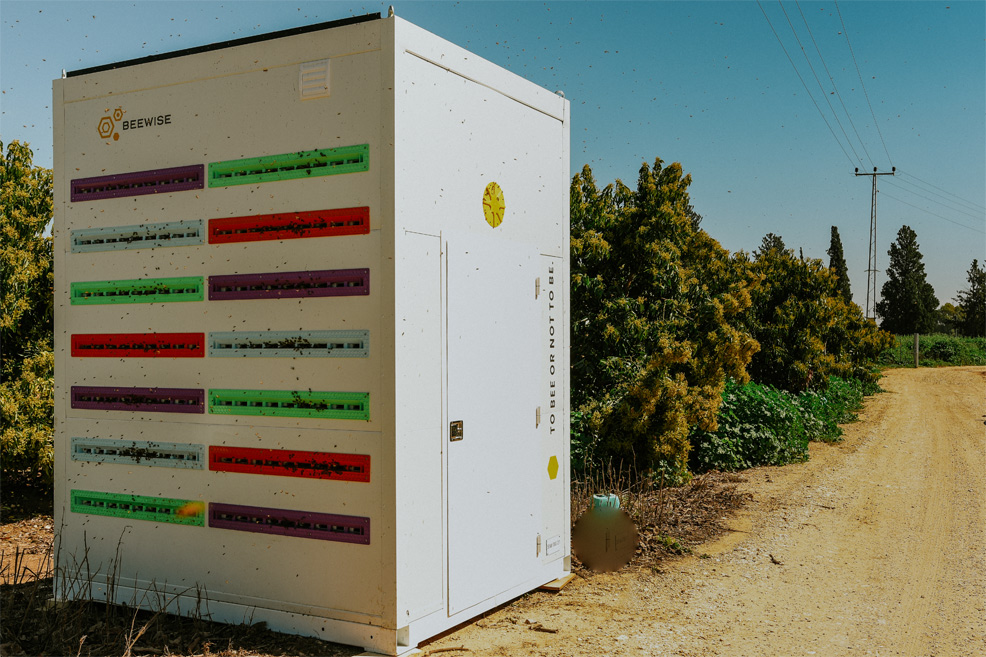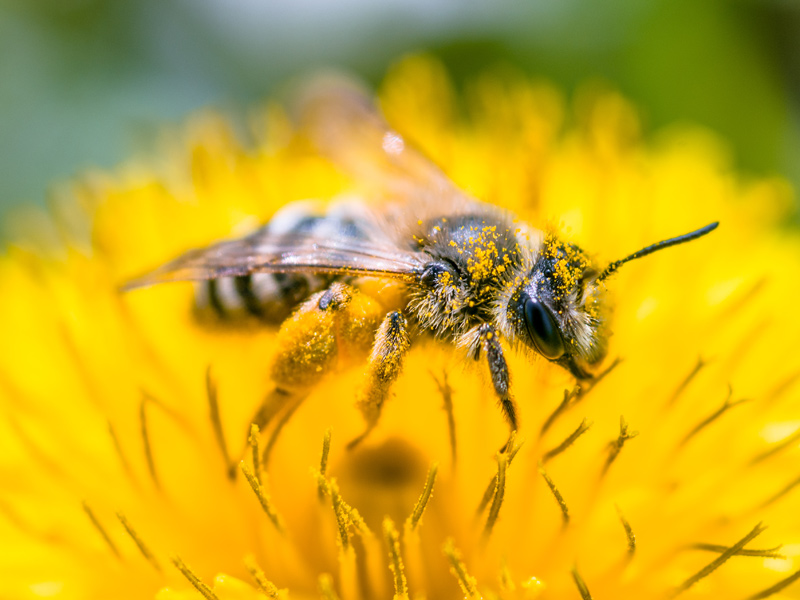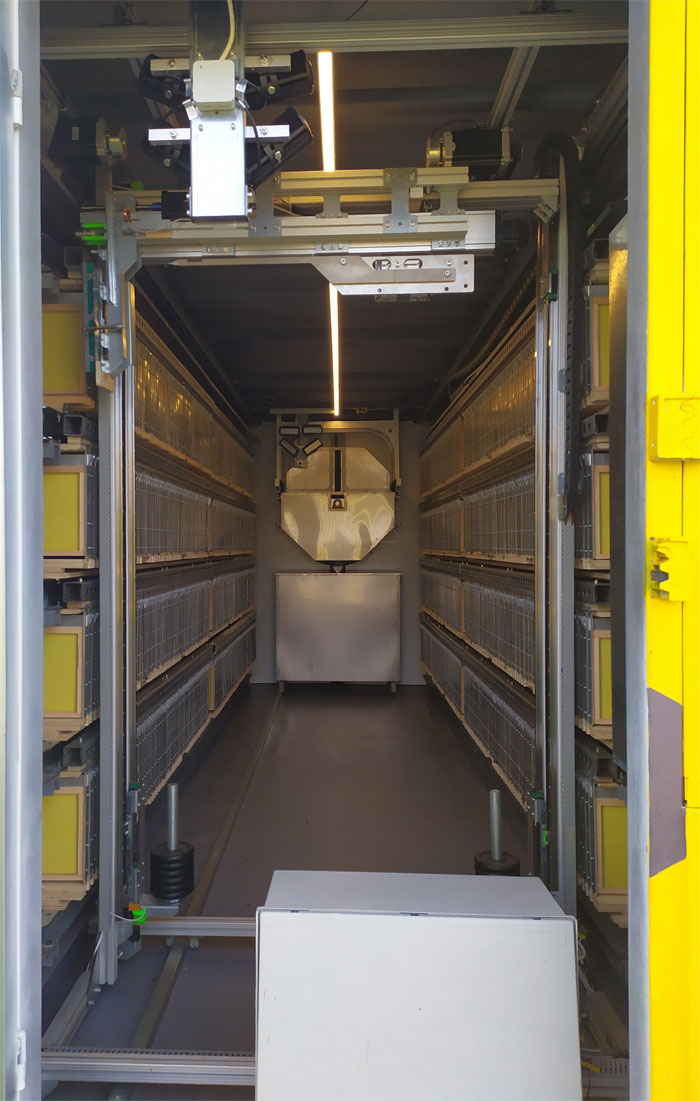
29th March 2021 Autonomous hives could save bee populations With bees in decline globally, one Israeli company has developed a technological solution that could restore their populations.
Bees are vital to the world's food supply, and for the preservation of biodiversity and ecological balance. It is estimated that one-third of the fruit and vegetables we eat relies on pollination from these insects. They support the growth of trees, flowers, and other plants, which serve as food and shelter for countless species. Unfortunately, bee populations are in decline around much of the world. Climate change is causing flowers to bloom earlier or later than usual, leaving bees with fewer food sources at the right time. Bees are suffering habitat loss from land clearance, agricultural intensification, pollution and other environmental damage. Colonies are collapsing due to harmful neonicotinoid pesticides, as well as parasites like mites. In the US, honey bee populations have declined by 60% since 1950, while in Europe, 12 wild bee species are now critically endangered. This mirrors a more general trend of catastrophic insect decline caused by the impacts of human activity.
An Israeli company has now demonstrated an innovative technological solution that could help to restore bee populations. Beewise has built the world's first autonomous beehive – a solar-powered habitat with space to house up to 40 colonies. The interior features a system of cameras, robotic arms, and sensors, allowing it to replicate what a human beekeeper would normally do. Using AI, the automated beehive can optimise colonies with an ideal temperature and humidity, feed them with nutrients, monitor and deal with pests, sense any harmful substances inside, prevent swarming behaviour and more. It can detect when frames are ready to be harvested, and once a container of honey reaches full capacity (100 gallons), it alerts the owner to come and empty it, making the process clean and efficient. This yields 200% more honey, improves bee colony survival rates, and decreases manual labour requirements by 90%, according to the company. An individual "Beehome" can be rented for $400 per month, which includes free setup and maintenance. The habitat is simply ordered from Beewise online, delivered to an apiary, and then populated with bees. A user can monitor and control the Beehome via an app installed on their mobile or other device.
"We are here to take every technology that is known to us and to apply it for the service of the bee," says Beewise on its website. "Our goal is to provide this technological platform to commercial beekeepers, and combined with their expertise and know-how, equip them with the tools to help their bees survive, thrive, and stay stronger and healthier. We are a for-profit company; but we aligned our financial goals with moral goals to ensure that for every cent we make, we save a bee. In fact, the real ratio is we save 2.7 bees for every cent we make. And we're working hard to increase this ratio." Beewise currently caters exclusively to the North American and EU markets. However, the company says that it plans on expanding its reach to other regions within the next few months. In November 2020, Beewise won the TIME Magazine Best 2020 innovation in AI category. The following month, they raised $22 million in Series B funding, led by Corner Ventures. This month, American business magazine Fast Company has awarded Beewise the #1 place on its list of the most innovative companies of 2021 in the Europe, Middle East and Africa category, for creating the world's first autonomous beehive.
Comments »
If you enjoyed this article, please consider sharing it:
|









